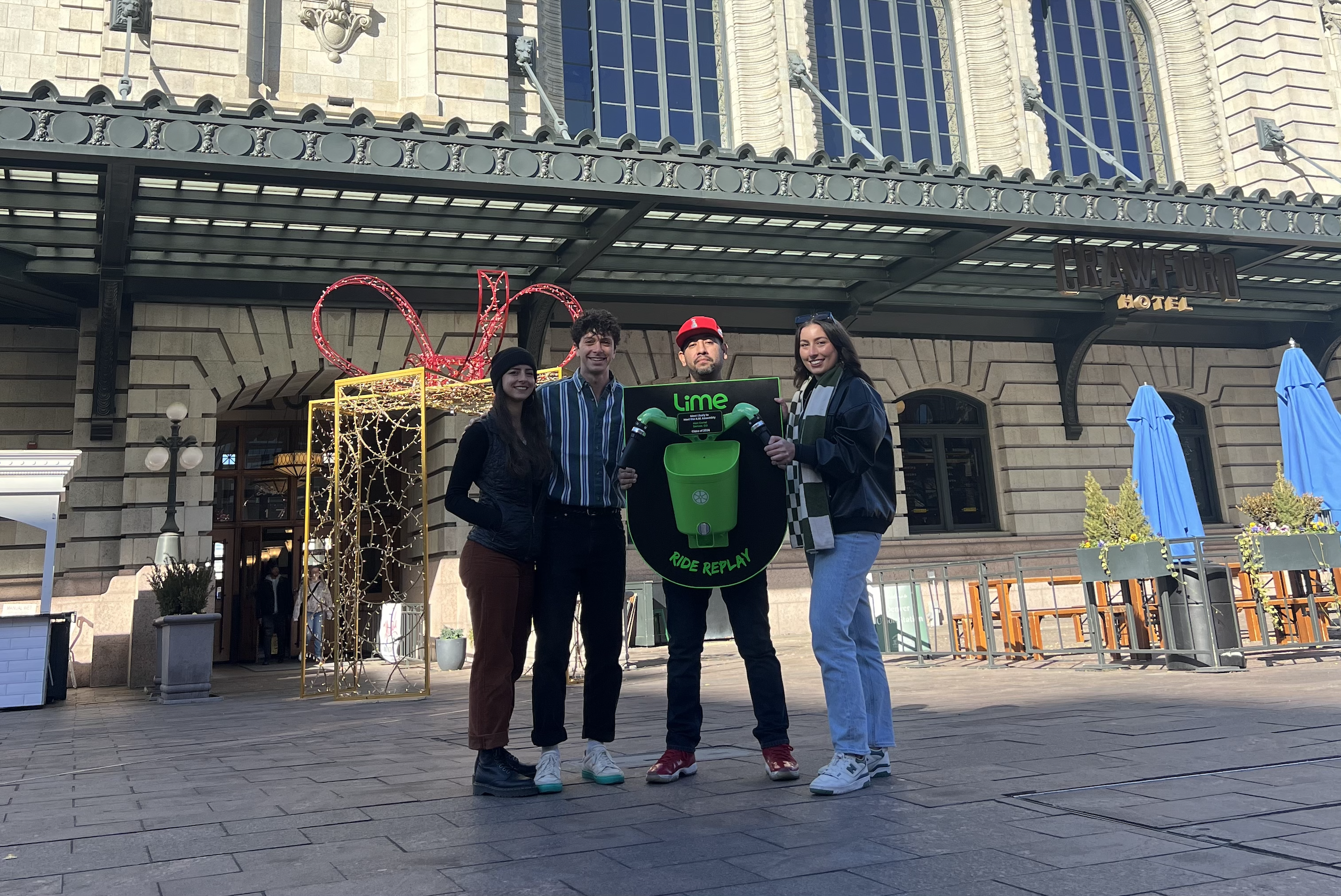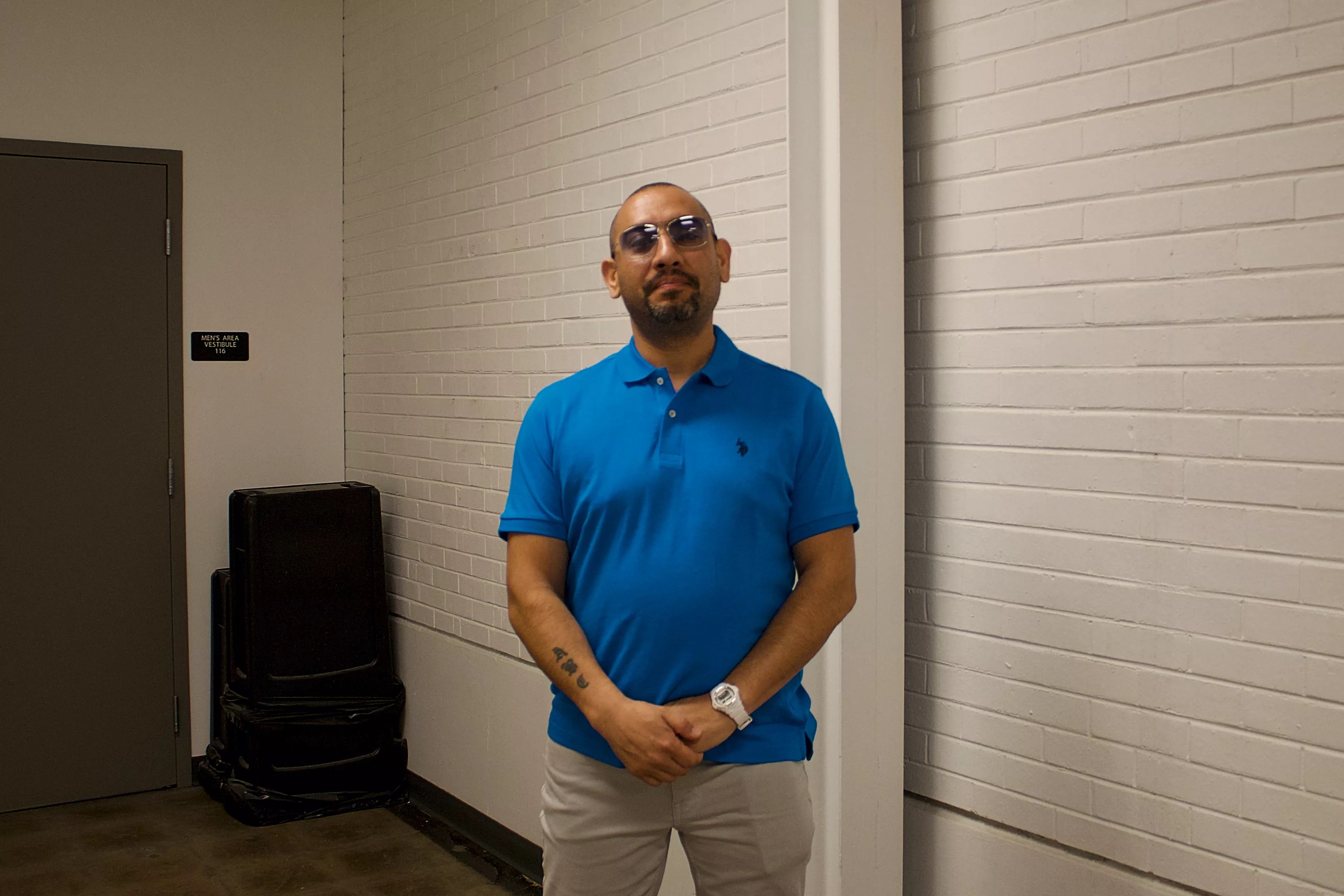
Lime

Audio By Carbonatix
Max Cortel started 2023 at rock bottom. He had just moved into the Denver Rescue Mission after his roommate attempted suicide, leaving Cortel homeless, unemployed and depressed. The emotional turmoil impacted his physical health, gaining weight until he was nearly 300 pounds.
By the beginning of 2025, Cortel had lost 115 pounds, secured a job as a security dispatcher at Denver Health and set a global record for riding the most miles on Lime bikes in the early mornings of 2024.
“I’m doing better in my life than I ever have,” says Cortel, a 42-year-old Denver native. “I had the opportunity to ride these bikes wherever I want to go, whenever I want to go. It literally helped to change my life. That isn’t an exaggeration. It gives you agency, autonomy; it really is amazing.”
Cortel is one of the 20,000 people in Denver signed up for Lime Access, a program that provides people in need with free rides on Lime’s rentable bikes and e-scooters.
Lime Access is offered in dozens of cities across the country, but around one-fifth of the 100,000 people signed up are located in Denver, according to the company. Anyone who receives city, state or federal subsidies like SNAP and Medicaid are eligible for the free rides, which last for thirty minutes at a time.
“Denver has one of the largest Lime Access programs nationwide,” says Julia Stevens, spokesperson for Lime. “Denver riders have saved nearly $24 million so far, something we’re really proud of accomplishing. Lime’s mission is to build a future where transportation is shared, affordable, and carbon-free so affordability is written right into our mission statement.”
The program has been a game changer for Cortel.
Cortel had struggled with homelessness as a young adult, but by age 32, he had stable housing living with a friend. Years later, Cortel’s roommate began experiencing mental health issues and attempted suicide multiple times, he says. The difficulties culminated in the men being evicted because the roommate had stopped paying the rent.
His roommate was ultimately taken in by family. But Cortel, estranged from his own family, was left alone with nothing.
“I lost everything overnight,” Cortel says. “I was extremely depressed. I never thought I would be homeless again. …The only reason I didn’t hang myself was because I thought I was too fat. That something might break and I might not finish the job.”

Max Cortel at the Denver Rescue Mission, where he has lived for the last two years.
Hannah Metzger
Cortel moved into the Denver Rescue Mission in February 2023. By March, he realized “no one is coming to save me. I’m going to have to figure this out and do whatever’s necessary to get myself out of this hole,” he says. He started walking and exercising on outdoor equipment when, a few months in, he noticed people riding around on green bikes and asked how to use them. That’s when he learned about Lime Access.
“It took off from there,” he says. He started using the bikes for transportation but soon realized if he pedaled quickly enough, he would hit resistance. The bikes then became his primary form of exercise. By November, he was riding as much as possible, including to and from a new apprenticeship installing solar panels.
However, one week before graduation, Cortel was struck by an SUV while on one of the bikes. Without health insurance, he chose not to go to the hospital and wound up mostly confined to his bed for months, he says. He started walking around again in February of 2024 – and biking again the following month.
“That’s when I went super hard because I lost all that time,” he says. “I would go out almost every day because it’s such an enjoyable experience. I would ride all over Denver. Any suburb you can think of, if it was within the boundaries of Denver, I went.”
That included riding to his interview for Denver Health, where he now rides to work daily.
By the end of 2024, Cortel had traveled over 4,000 miles on Lime bikes between 4 and 9 a.m. alone, Lime reports. That’s like biking from Denver to Durango ten times. It earned him global recognition from the company, being awarded the “most likely to host the a.m. assembly” superlative during Lime’s end-of-year campaign.
His total miles traveled reached 6,246 as of March 7, 2025. He plans to break his own record by the end of the year.
Lime Access is different from city to city, Stevens says. The company works with local governments to create programs that meet the needs of specific communities.
“Lime Access exists to ensure that lack of transportation never gets in the way of people living a full and dignified life,” Stevens says. “We are fighting against transportation inequity. When your zip code determines your access to opportunity, communities are left cut off from jobs, education, healthcare, and basic freedoms.”
Lime recorded 5.2 million rides in Denver in 2024 – a 40 percent increase from 2023 – making it a top-five city in North America for Lime ridership. But as the popularity increases, Denver’s relationship with micromobility devices like Lime’s bikes and e-scooters has become more complicated.
Denver City Council has started talks about cracking down on rider behavior, such as riding on sidewalks, riding while intoxicated, and blocking sidewalks, curbs or streets with parked bikes and scooters. This comes as the city grapples with increasingly frequent scooter collisions. Denver Health registered 1,962 patient encounters attributed to scooter injuries in 2024 – more than five each day of the year.
As the city mulls further regulations, some fear micromobility companies will pull out of Denver. Lime is one of only two companies permitted to provide rentable bikes and e-scooters in Denver; Bird took over Lyft’s contract with the city in December. Both companies’ licensing agreements are set to expire in May 2026.
Amid the debate, Cortel says the city should double down on alternative transportation programs like Lime Access.
By riding the rentable bikes, he doesn’t have to worry about maintenance or theft, and he can get around the city while avoiding traffic and public transit delays. That has been “extremely important” to rebuilding his life, he says.
“Lime Access was a force multiplier for me,” Cortel adds. “I still would have accomplished what I’ve accomplished, but not within the timeframe. …That really was such an important aspect for improving my health, improving my mental health, improving my situation overall and actually having some momentum.”
“Things have exponentially improved in my life. And this is only the beginning.”